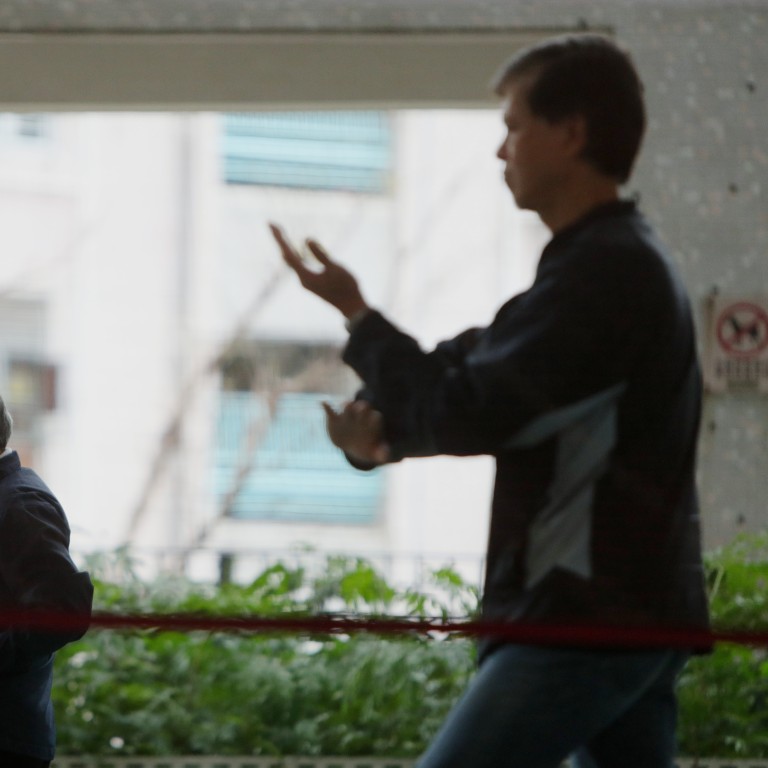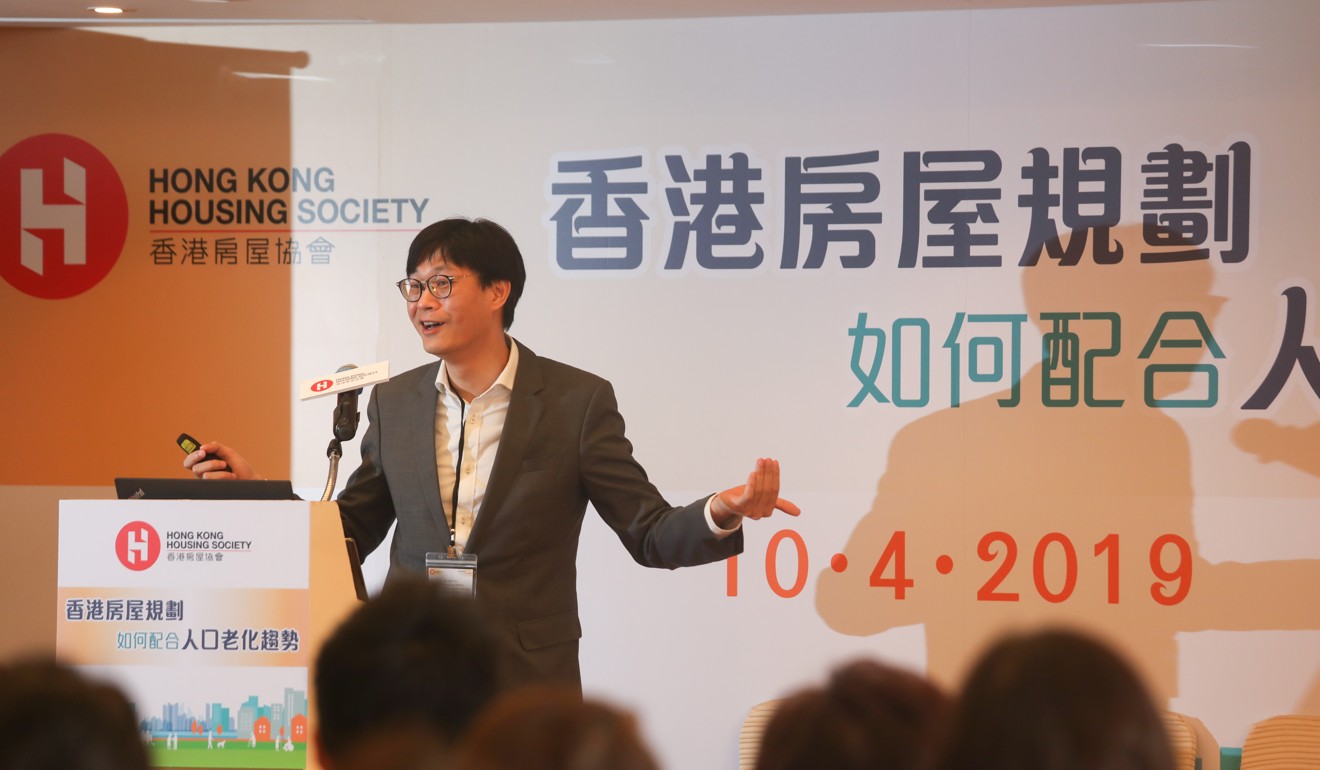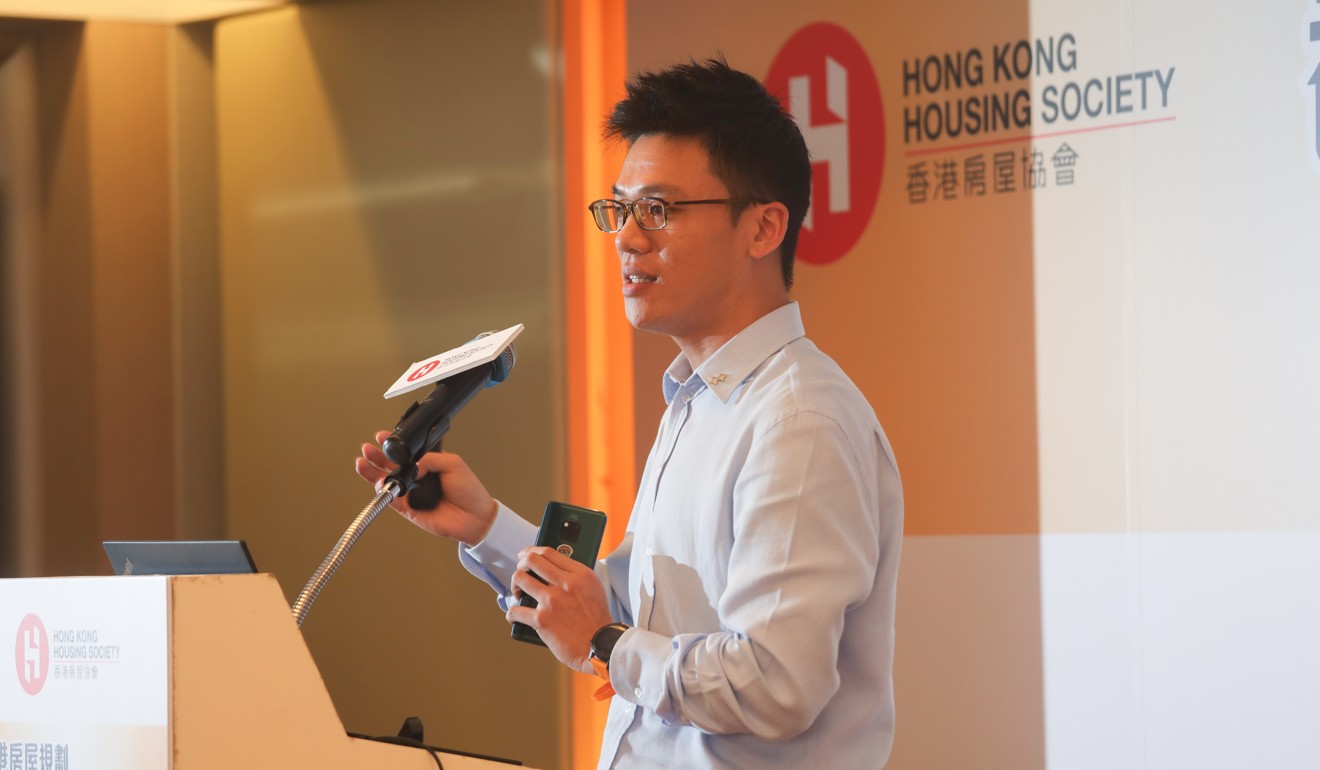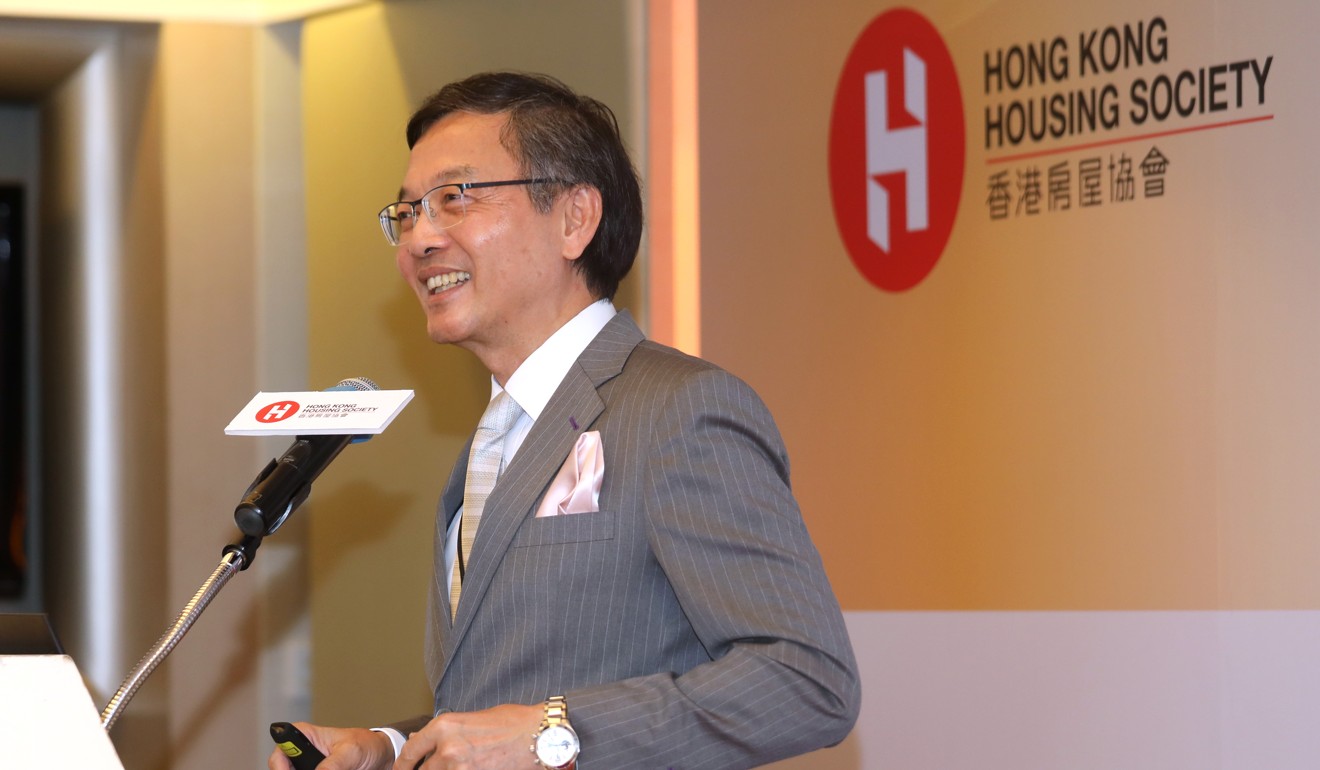
Mainland China property developer aims to lure wealthy elderly residents from Hong Kong across border to housing project
- Zhuhai Zhihe Healthcare Industry Holdings will build a hub for the elderly on Hengqin island with a housing project targeting wealthier Hongkongers
- But sceptics question whether locals will be interested in moving across the border for retirement
Mainland China-based Zhuhai Zhihe Healthcare Industry Holdings will build a hub for the elderly on Hengqin island, Zhuhai, in Guangdong province, with a housing project targeting wealthier Hongkongers.
Some 1,800 flats, ranging between 400 and 1,100 sq ft, will be available exclusively to permanent residents over the age of 60 as early as 2022 on “lifelong” and short-term leases.
“There are three things elderly people are most afraid of: being lonely, falling ill and change,” the company’s CEO Alan Au Kwok-lun said at a Housing Society forum on Wednesday.
“To attract people to the Greater Bay Area to retire, we should tailor-make a neighbourhood infused with Hong Kong culture and living style that provides an even better living environment than in Hong Kong.”

The Greater Bay Area is Beijing’s ambitious plan to integrate Hong Kong, Macau and nine Guangdong cities including Zhuhai into a financial and economic powerhouse.
Au expected short-term leases of at least two years could cost from HK$10,000 (US$1,282) to HK$20,000 per month, while long-term ones would be a fraction cheaper than housing projects for the elderly in Hong Kong. One-off payments in Hong Kong can go from HK$1 million to HK$15 million depending on the age of the tenant and flat size.
There are three things elderly people are most afraid of: being lonely, falling ill and change
Last year, the company bought a 1.4 million sq ft site in Hengqin for 623 million yuan (US$92.8 million) for building hospitals and other medical facilities.
Au envisions that some of the city’s wealthier retirees could enjoy a more spacious and relaxing living space in a self-contained community with elderly friendly facilities and Hong Kong-style restaurants.
A city-by-city buying guide for property in the Greater Bay Area
The development, around an hour’s drive from Hong Kong, would provide medical care within arm’s reach and flats big enough to allow families to visit residents for a few days. They could also lease out their flats in Hong Kong to young people, which would in turn help alleviate the city’s housing shortage.
Au was one of three speakers invited by the society, the city’s second largest public housing provider, to address the forum “Housing planning for the ageing population in Hong Kong” as part of efforts to urge the private sector to exchange ideas and how to best plan for meeting the needs of a greying society.
There are more than 1.1 million people over the age of 65 living in Hong Kong. In 2014, there were some 60,000 people in 733 residential care homes for the elderly, according to Department of Health figures. By 2036, one in three residents will be elderly, official statistics forecast.
“The elderly population in Hong Kong will continue to grow. The Housing Society can only build a handful of flats for the elderly and will not be able to satisfy demand,” society chairman Walter Chan Kar-lok said.
Hong Kong developers to launch 9,000 flats as sentiment improves
Chan cited the society’s own upscale housing project for the elderly, Tanner Hill, which has a waiting list of more than 1,300 people. The 588 flats in North Point are fully occupied by residents aged 60 or above who can get a“life lease” by paying a one-off fee, or a short-term lease.
The Hengqin project, currently under construction, would take reference from the business development model of the Tanner Hill development, Au said.

But Almustafa Lee Lap-hong, general secretary of the Hong Kong Elderly Rights Association, was sceptical over whether locals would be interested in moving across the border for retirement.
“The two things that middle-class elderly residents care most about is whether the project would be able to offer quality medical services and if it offered any investment return,” said Lee, who did not participate in the forum.
Hong Kong’s February home prices rise for a second straight month
“Unless the quality of medical services provided can be trusted, and is as good as Hong Kong’s, how many people will be willing to shell out HK$10,000 every month to leave their homes in Hong Kong when they have top-notch medical services here?
“It takes time to test [any innovative ideas or projects]. Without trust, it seems too childish to persuade any middle-class elderly people to invest in a new life in a strange place.”
He also doubted whether family members would be willing to travel that far to visit their elderly relatives.
Another forum speaker, Stan Tang Yiu-sing, chairman of family conglomerate Stan Group, said their company planned to build at least 3,000 more flats for the elderly in the coming years.

The developer turned a residential building in Kowloon City into a HK$20 million serviced apartment project known as Patina Wellness, which features 79 flats for the elderly and their families.
“It’s about building an elderly friendly community, not just a nursing home where you put old people so you can take care of them efficiently,” Tang said.
Another panellist, Dr Lam Ching-choi, chairman of the Elderly Commission and the government’s top policy adviser, said: “Hong Kong is not prepared for the challenges of an ageing society, whether it be our hotels, indoor or outdoor facilities. We need to be more creative and think out of the box, instead of using outdated methods to solve our future needs.”

